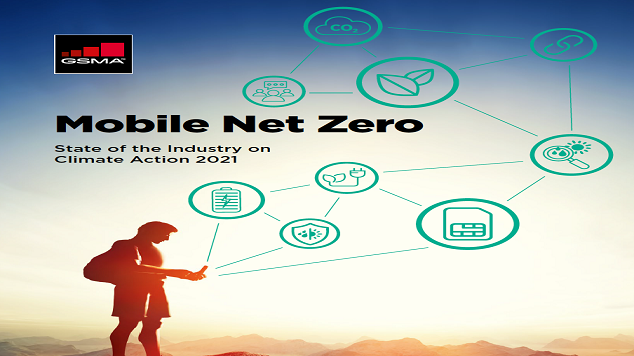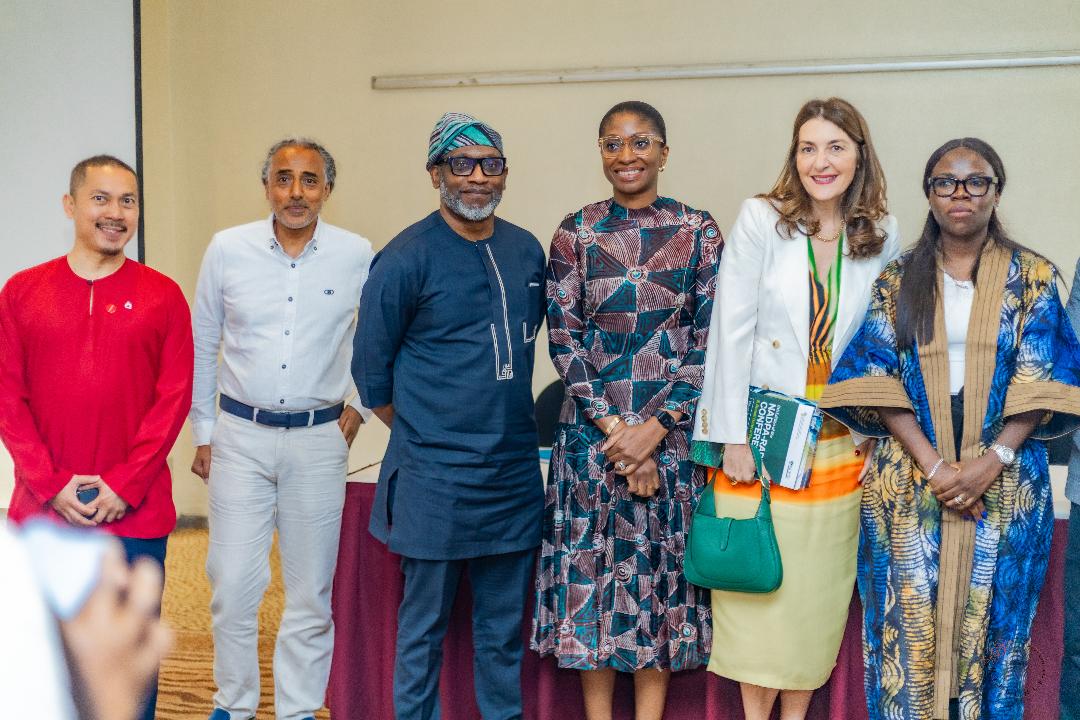Telecom
Kuda Unveils eSIM Feature to Save Global Travelers Data Roaming Costs

Kuda has introduced a new feature allowing its customers to purchase eSIMs directly from the Kuda app.

Nosa Oyegun
This innovative service provides users with virtual SIM cards for seamless internet access across more than 60 countries including the US, UK, Canada, and Saudi Arabia as well as top tourist and business destinations in Europe and Africa.
The new eSIM service offers a convenient way for Kuda customers to stay connected internationally without the need for a foreign data plan. Unlike traditional SIM cards, eSIMs are digital and can be embedded within devices such as smartphones, tablets, and smartwatches.
Kuda customers can now access internet data plans ranging from as low as 1GB, which is valid for seven days, to as high as 20GB, depending on their travel needs.
The eSIM itself is free; customers only pay for the internet data they need. Although the eSIMs do not come with a phone number, users can easily make and receive audio and video calls via apps like WhatsApp and FaceTime.
Nosa Oyegun, VP Product Innovation and Strategy at Kuda: “Our [Kuda’s] eSIM feature is a cost-effective and convenient way for our customers to stay connected while travelling.
“They won’t need to buy a SIM card at their travel destination, spend forex on data plans, or pay data roaming fees.”
The introduction of the eSIM feature marks another step in Kuda’s mission to provide innovative banking solutions that extend beyond traditional financial services and empower its users.
As the demand for flexible, borderless connectivity grows, Kuda continues to evolve its offerings to meet the needs of modern, mobile-savvy customers.
The eSIM feature is now live on the Kuda app, giving the bank’s customers a hassle-free way to stay connected when they travel.
Telecom
Tarana, Microsoft Enhance Africa’s Broadband Connectivity

Tarana, provider of next-generation fixed wireless access (ngFWA) broadband technology, is collaborating with Microsoft to expand internet access in rural and underserved communities across Africa.

Together, the companies will help service providers in rural and underserved Africa deploy government-approved telecom equipment, along with training and technical support.
This comes as access to secure; affordable telecom equipment remains a major barrier to internet connectivity in Africa. Despite progress, high infrastructure costs and limited rural coverage have allowed the digital divide to persist.
Tarana stated that in some areas, fewer than 30% of people have dependable internet connectivity.
To that end, it said its collaboration with Microsoft will help reduce the cost of ngFWA equipment for African internet service providers while also assisting with deployment logistics, enabling them to give internet access more faster and more cost-effectively.
The company went on to say overcoming two primary limitations of traditional fixed wireless access) technology, ngFWA delivers high-speed broadband service in both non-line-of-sight conditions and heavy radio interference, making it an ideal solution for hard-to-reach and underserved markets.
More than 250 operators worldwide are deploying ngFWA to deliver better broadband more efficiently, said the company.
Basil Alwan, CEO of Tarana, added: “We look forward to making significant progress on the digital divide together.”
“Access to affordable, secure broadband infrastructure is essential for unlocking economic opportunity through digital access across Africa,” said Vickie Robinson, general manager, energy, connectivity, and sustainability at Microsoft. “By working with Tarana, we’re helping local operators overcome cost and deployment barriers so they can bring high-speed connectivity to the communities that need it most.”
Telecom
Mobile Industry Emissions Down 8%, But Pace Must Double to Hit Net Zero

The mobile industry’s operational emissions fell by 8% between 2019 and 2023, even as mobile connections grew by 9% and data traffic quadrupled, according to the GSMA’s fifth annual Mobile Net Zero report released this week.

The findings show the mobile industry has successfully started to decouple emissions from data and connectivity growth – a stark contrast to global emissions, which have increased 4% since 2019. However, to continue progress and reach net zero by 2050, emissions must fall by 7.5% annually until 2030 – more than twice the average annual rate achieved to date.
Key findings from the report include:
- Preliminary 2024 data suggests a further 4.5% drop in emissions – an acceleration on previous years, but still short of the 7.5% annual reduction needed to 2030.
- 37% of electricity used by operators disclosing to CDP came from renewables in 2023, up from 13% in 2019 – avoiding 16 million tonnes of emissions.
- 81 mobile operators (covering nearly half of global connections) have set or committed to science-based targets.
- The GSMA Climate Action Taskforce now includes 77 operators, covering 80% of mobile connections worldwide.
- Europe (-56%), North America (-44%), and Latin America (-36%) lead the way in operational emissions reductions between 2019 and 2023.
- New analysis of China shows operational emissions likely fell by 4% in 2024 – the first decline after a 7% rise between 2019–2023 – alongside a more than quadrupling of renewable energy use.
Global, collaborative climate action gathers pace
The acceleration in decarbonisation is driven by operator actions to improve network energy efficiency and transition to clean energy, including solar and battery storage. Many operators are phasing out less efficient legacy networks and reducing their reliance on diesel generators.
Some markets are seeing better renewable electricity access through policy support and market reform, but the GSMA warns that the accelerated reductions needed by 2030 will require greater access across more markets.
Regional momentum is building globally, with Europe and the Americas leading emissions reductions, while Asia and Africa show increasing engagement. China, representing the world’s largest mobile market with more than one billion 5G connections, shows promising progress in 2024.
New analysis published today to frame discussions at MWC25 Shanghai indicates China’s operational emissions declined for the first time in 2024, with preliminary data showing a 4% reduction year-on-year driven by a more than quadrupling in renewable energy use by operators. As the industry’s largest single market, China’s progress is instrumental in achieving global net zero targets.
Steven Moore, Head of Climate Action at the GSMA comments: “Our findings show the mobile industry isn’t greenwashing or greenwishing – it’s green acting. Emissions are trending in the right direction, but the pace of progress must now double.
“This is a global effort, and it’s encouraging to see momentum building across every region – from Latin America to Europe and especially to China.
“But to sustain this progress, we need broader support: better access to renewables, more policy certainty, and stronger collaboration across the ecosystem. Supply chain emissions, which make up most of our industry’s footprint, must also be addressed – and climate transition plans will play an increasingly important role in navigating what comes next.”
Focus on Scope 3 and circularity sharpens
The report emphasises that Scope 3 emissions – mostly from supply chains and manufacturing – account for more than two-thirds of the industry’s total carbon footprint and require attention. While transparency is improving, Scope 3 emissions remain a blind spot compared with operational emissions (Scopes 1 and 2), making them a critical challenge for operators with science-based targets, which require reductions across full value chain emissions.
Additionally, the report points to growing momentum around circular economy initiatives. Consumer appetite for sustainable devices is rising, with around 90% of users surveyed by GSMA saying they value longevity and repairability, and nearly half considering refurbished for their next phone purchase.
Buying refurbished instead of new can save consumers money and reduce environmental impacts from manufacturing, with refurbished phones generating 80-90% fewer emissions than new ones. While new device sales have slowed in recent years, the second-hand device market is growing rapidly, and projected to be worth $150 billion by 2027.
Many leading operators are now developing climate transition plans to assess climate risks and map out credible, long-term strategies toward net zero. These plans are expected to become a key focus of the GSMA’s Climate Action Programme over the coming year.
Telecom
MTN’s Ikenna Ikeme Urges Responsible AI Use @Pan African Data Policy Conference

The use of local content in Artificial Intelligence systems is essential for delivering accurate, region-specific results, according to MTN Nigeria’s General Manager for Regulatory Affairs, Ikenna Ikeme.

He shared this perspective at the recently held Network of African Data Protection Authorities (NADPA) Conference, held in Abuja recently.
The conference convened industry leaders, policymakers, and experts to discuss the role of data and AI in shaping Africa’s future. Key discussions focused on balancing innovation with risk, safeguarding data in AI systems, promoting responsible data use, and enabling cross-border data flows.
During a panel on “Data Governance for Responsible and Beneficial Use of AI,” Ikeme highlighted data’s dual nature. “Data can be transformational by bringing efficiency to businesses, but it also presents risks, ranging from privacy to investment,” he stated. He warned against relying too much on external data.
Adewale Adene, Google’s Government Affairs and Public Policy Manager, also spoke at the session. Adene projected AI and data governance could add $30 trillion to Africa’s economy by 2030. “All relevant authorities and stakeholders must ensure Africa is positioned to capitalise on this new economy,” he urged.
Other panelists included Nonye Ujam, Government Affairs Lead at Microsoft; Ololade Shyllon, Director of Privacy Policy for Africa, the Middle East, and Turkey at Meta; Oliver Patel, Head of Enterprise AI Governance at AstraZeneca (who joined remotely); Femi Daniel, Senior Counsel, Privacy and Data Protection at Mastercard; and Adewolu Adene, Government Affairs and Public Policy Manager at Google.
The conference stressed the urgent need for African stakeholders to create strategic policies. These policies should support both growth and safety.
Participants called for collaboration, investment in local data infrastructure, and strong legal frameworks. This is to ensure AI technologies are developed and used responsibly.
The NADPA Conference served as a timely call to action. It urged governments, companies, and regulators to prioritise trust and transparency. Homegrown solutions are key in shaping Africa’s digital destiny, the conference concluded.

 Telecom2 days ago
Telecom2 days agoALTON Clarifies on Migration to End-User Billing for USSD Services

 News3 days ago
News3 days agoDigital Africa Global Consult, NDPC Partner on Ground-Breaking “Nigeria Data Challenge” Initiative

 E-Financial2 days ago
E-Financial2 days agoNigerian Stock Market Suffers ₦183 Billion Loss Amid Profit-Taking

 News2 days ago
News2 days agoDStv Rewards Loyal Customers with Free Package Upgrades

 Telecom2 days ago
Telecom2 days agoLagos Future Conference 2025: Stakeholders Call for Digital Responsibility and Grassroots Innovation

 General News2 days ago
General News2 days agoAfrican Parliamentarians Seek Answers from Telcos on Quality of Service

 E-Financial2 days ago
E-Financial2 days agoSEC Working on Stablecoin Regulation Framework

 News2 days ago
News2 days agoFCCPC Orders Air Peace to Appear Over Alleged Refund Violations




























